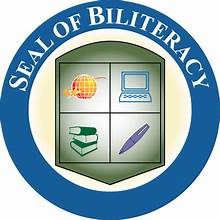Colleges transition to test score optional
Colleges across the nation are taking another step when admitting students by creating test score optional applications. These applications are for students who choose not to submit their standardized test scores to their colleges. Schools like Lake Forest, DePaul University, and University of Chicago have added these applications to their admissions processes with hopes to better judge the “whole student,” which takes into account students’ high school careers with extracurricular activities, personality, and accomplishments.
“I think a lot of colleges are realizing that it’s not a score that will define a student’s success. They start to consider other factors such as personality and leadership to predict how they’ll be in their school’s environment,” said guidance counselor Kevin Ball.
Many students may depend on their SAT/ACT scores in order to get into a good college; however, colleges are moving toward seeing the whole student rather than numbers.
“At Lake Forest when a student applies test optional, we end up looking more at their academic transcript and what classes they’ve taken. We will also ask to do an interview so that they are able to showcase their personality,” said freshman admissions director Franklin Gogglin.
These types of applications provide more opportunities to students by being more open to the student’s personality rather than focusing strictly on GPA and standardized scores.
“I think what these colleges are doing is amazing because it really does benefit the students by giving them more opportunities,” said guidance counselor Megan Stenberg.
Colleges are starting to recognize that some students have a disadvantage when it comes to standardized tests, and therefore they may not be able to succeed as well as others due to standards out of their control. According to Fair Test, the National Center for Fair and Open Testing, more than 700 four year schools across the nation are test score optional.
“Some students don’t have the resources available to excel at testing, especially amongst lower-income students. They may only be able to take the test when the school gives it out, while other students can hire a tutor and be able to take it multiple times,” Gogglin said. “Then these standardized become more beneficial to higher income students and more of a social and financial capital than true academic ability.”
By pursuing these type of admissions, students can present themselves better during the process instead of relying on SAT/ACT.
“Students want to put their best foot forward when applying for schools, and this way they’re able to showcase themselves in the best light,” Gogglin said.




